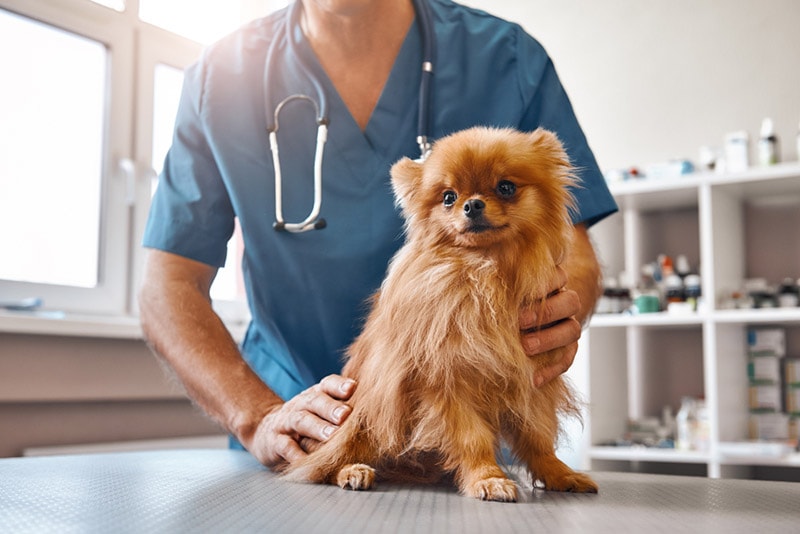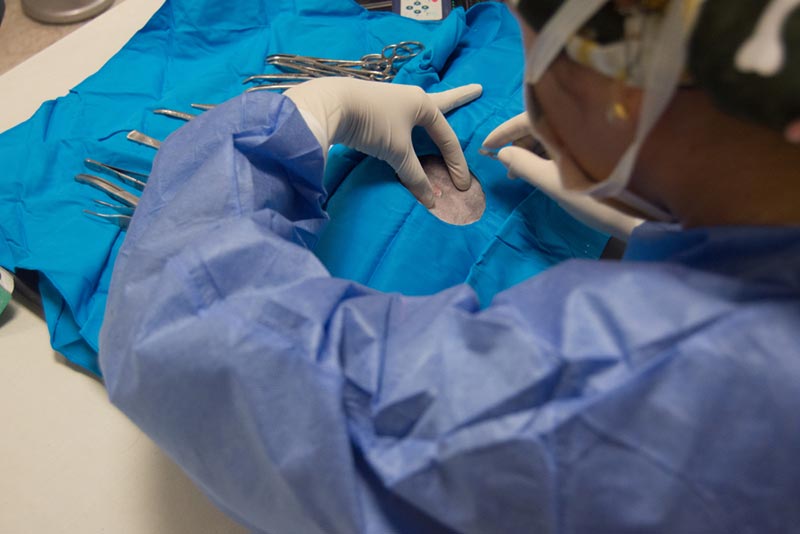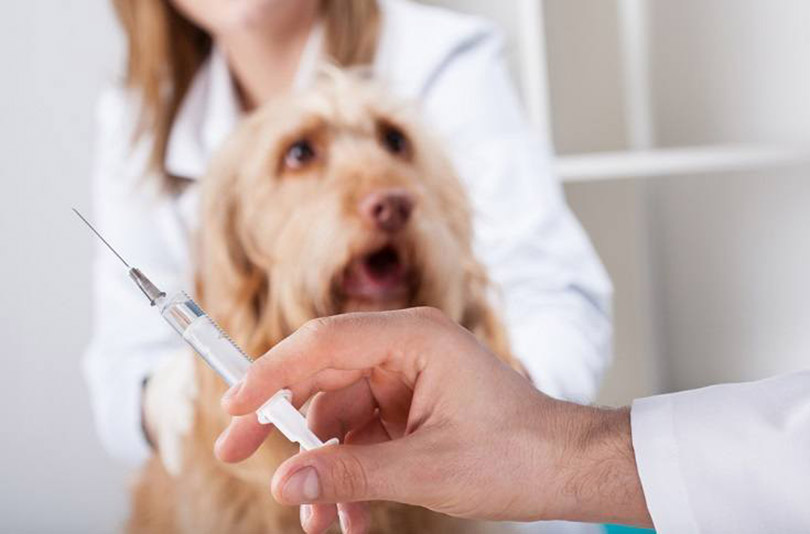
Click to Skip Ahead
Preventive care isn’t just for humans; it’s also an essential and highly beneficial part of healthcare for dogs. Just like you see the doctor yearly for a routine physical, your canine companion should do the same. But preventive care for dogs doesn’t only involve an annual check-up to ensure your pup is in good health. It also comprises several other measures to keep your beloved doggo healthier and happier for longer.
So, what is preventive care for dogs exactly? How can you be sure you’re doing everything you should for a healthy and happy pet? Let’s look at what preventive care means for your dog, and how it will enable them to stay well and live longer.
How Does It Work?
You know that one dog year is equivalent to approximately seven human years; this means your dog ages more quickly than you do, which is one reason preventive care is essential for keeping them in optimal health. Besides ensuring your dog’s health, preventive care also means you’ll likely be saving money on vet bills in the long run. After all, preventive care allows your dog’s vet to catch any health issues early, which will be less expensive to treat than if the problem had reached an advanced stage.
How does preventive care for dogs work? The goal is to offer your dog their best chance at a long and healthy life, so preventive care doesn’t only involve routine physical exams for your pup; it consists of a multi-faceted approach to your pet’s healthcare. This means preventive care for dogs includes vaccinations, parasite prevention, weight management, dental care, and more.
Most of the work on your end will be done by getting your dog to the vet when needed, doing any follow-up the vet advises, and caring for your pup at home.

What Are the Different Types of Preventive Care?
We’ve mentioned different types of preventive care, but what are they? To make sure that all dogs receive the same kind of preventive care across the board, the American Veterinary Medical Association, along with the American Animal Hospital Association, accumulated information from a range of groups to create standardized recommendations for preventive care. Below, you’ll find some of the different types of standardized preventive care your dog should get!
1. Annual Exams
You see your primary care physician yearly for an annual physical, and your canine pal should do the same. After all, for them, it’s like having a checkup every 7 years! Your pup might seem perfectly healthy—and might be perfectly healthy—but that doesn’t negate the need for an annual exam. A quick physical done by your vet can detect potential health problems, such as tumors, heart murmurs, organs that have changed size, or enlarged lymph nodes. This physical also allows your pet’s vet to check your pup’s sight and hearing to ensure all is well there and look at your dog’s skin and coat to determine whether your dog is dealing with ticks, fleas, or infections.
As your dog ages, they may need to get these exams more than once a year to ensure they’re staying well.

2. Parasite Prevention
Now, here’s a preventive care measure you’re likely already implementing. Parasite prevention refers to medication to prevent fleas, ticks, heartworms, etc. These could be oral medications or topical. Giving your pet these medications only takes minutes, but they go far in keeping your dog their healthiest.
3. Neuter/Spay
This is another standard preventive care measure. It might seem as though having your pet neutered or spayed simply ensures no unwanted pregnancies occur, but these procedures can do quite a bit for your pet’s health. Having your dog fixed can lengthen their lifespan, keep them from straying or partaking in destructive behaviors, help prevent certain cancers, and more!

4. Caring for the Teeth
Let’s be honest; we don’t always brush our dog’s teeth as often as we should. However, the health of your dog’s teeth can affect their health in general, so keeping up with dental care for them is vital. Without routine maintenance for the teeth, your dog could suffer from periodontal disease, and the bacteria from this isn’t only restricted to the mouth. Bacteria from periodontal disease can get into the bloodstream and make its way to your dog’s organs, resulting in significant health problems. So, brush your dog’s teeth regularly, but also have their teeth checked once a year by their vet!
5. Vaccinations
You’re probably pretty good about keeping up with this aspect of preventive care. All those vaccinations your dog needs are incredibly important to keep them healthy (especially those required for puppies). Making sure your dog receives vaccines when needed means keeping them safe from illnesses like rabies, kennel cough, distemper, Lyme disease, and more.

When Is It Used?
Preventive care is something that is used every day. While you might only take your pet to the vet once a year for something like an exam or vaccines, there’s plenty you can do at home regarding preventive care. Ensuring your dog eats a healthy diet daily while also ensuring they’re getting all the daily exercise they need is essential (and excellent) preventive care. Providing parasite protection for your pet is a monthly occurrence while brushing your pup’s teeth is a three-times-a-week endeavor. So, preventive care is used daily, weekly, and monthly with your dog (and you’ve likely been doing many preventive care items for a while without realizing it!). It is everything that you and your vet do to keep your dog healthy, and, where possible, prevent disease.
Frequently Asked Questions (FAQ)
You might still have a few questions about preventive care, so we’ve gathered some questions people ask frequently about this subject.
Does helping my dog maintain a healthy weight count as preventive care?
Yes! Studies have shown us that dogs who are obese have more health issues than those who are leaner. This means helping your pup maintain a healthy weight absolutely falls under the umbrella of preventive care. You can help them with their weight by feeding them a healthy diet and making sure they get plenty of daily exercise. Talk to your vet or nurse about your dog’s body condition score and ideal weight.
Is getting preventive care for my dog expensive?
Preventive care is much cheaper than the potential cost of your dog getting sick or developing a chronic condition. If you are concerned about the cost of preventive care, though, you may want to get a health care plan for your pet.
When should I have my dog spayed or neutered?
Each dog is an individual, so speak with your pup’s vet about the best time to have them fixed. In general, dogs should be spayed or neutered once they have finished growing, which can be 6 months for some breeds, or 2 years for others.
Does microchipping my dog count as preventive care?
It definitely can! It may not affect your pet’s health, per se, but microchipping your dog means if your pup gets lost, they can safely be returned to you. And that is part of keeping your four-legged friend healthy and happy!
Conclusion
Preventive care is essential for dogs, as it helps to keep them healthy and happy. There are many aspects to preventive care, but the good news is that you’re probably doing preventive care with your dog already. Some parts of preventive care are relatively easy, such as ensuring your pet eats well, gets their vaccines on time, and is protected from parasites. Others, like teeth cleaning and yearly exams, require a bit more work, but they’re more than worth it. So, practice preventive care with your canine companion to keep them around for a long time!
Featured Image Credit: Monster Ztudio, Shutterstock








